Year in Review Highlights
Download our Health Priority Report Cards
Aboriginal Health Aged Care General Practice & Digital Health
Health Workforce Mental Health & AOD Population Health
![]()
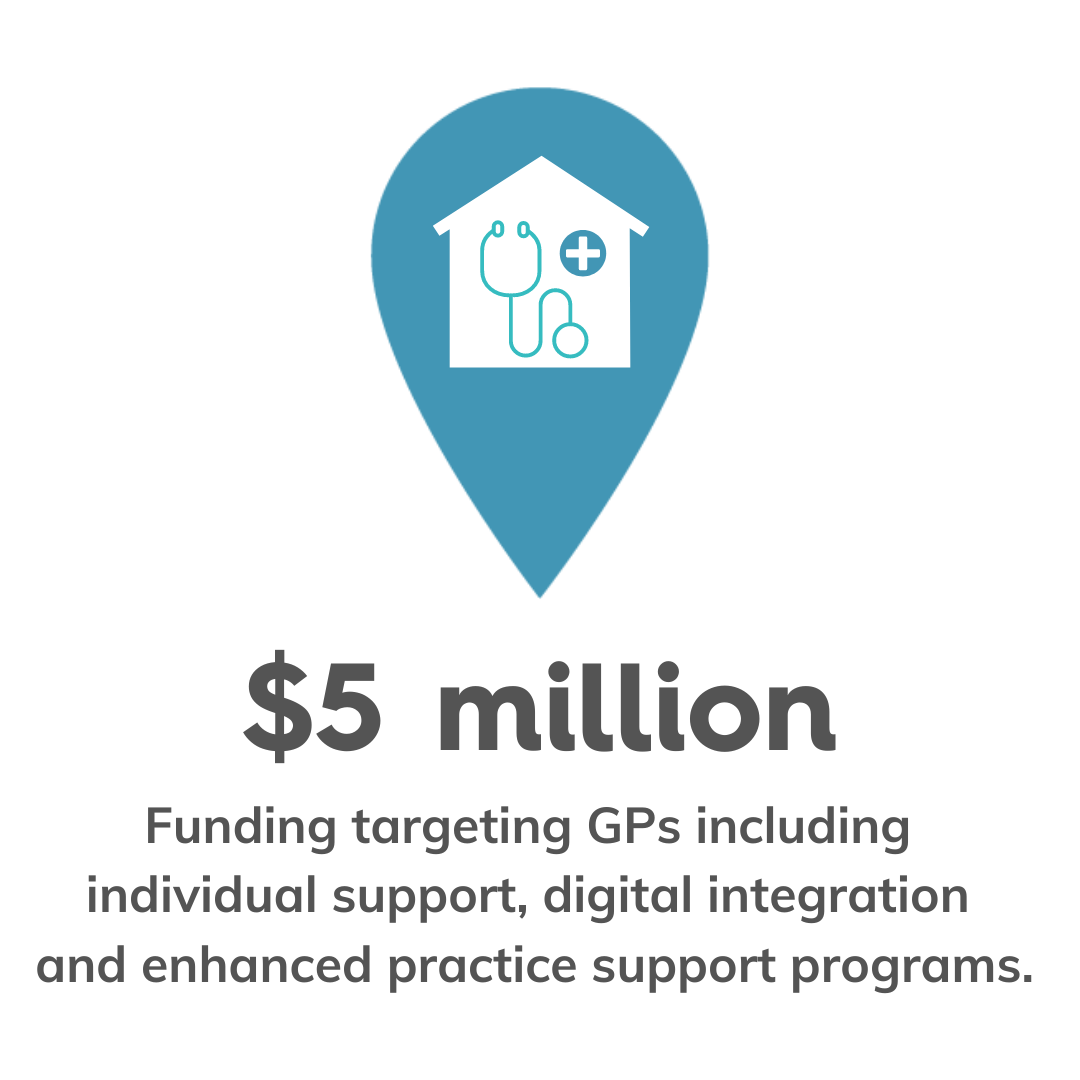
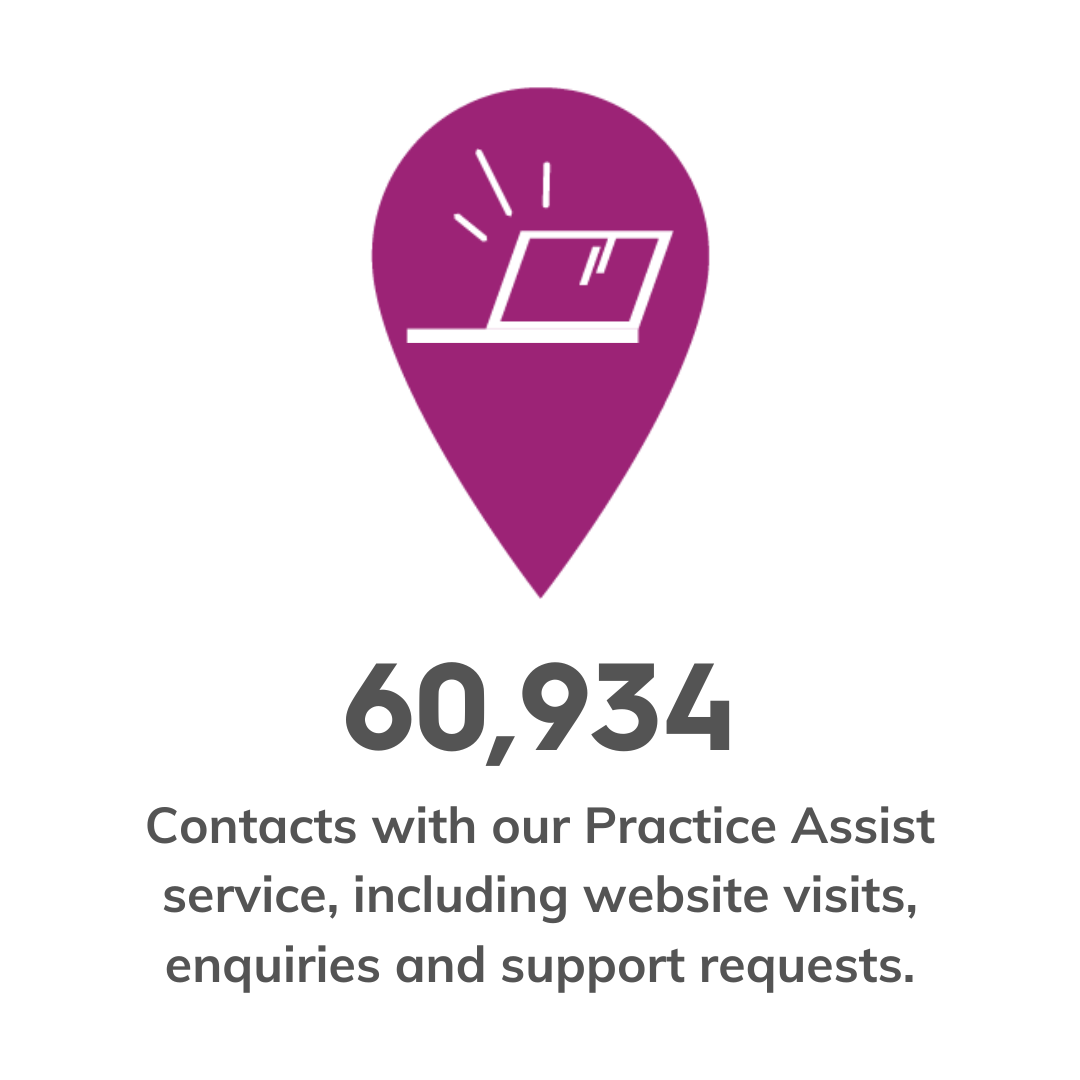
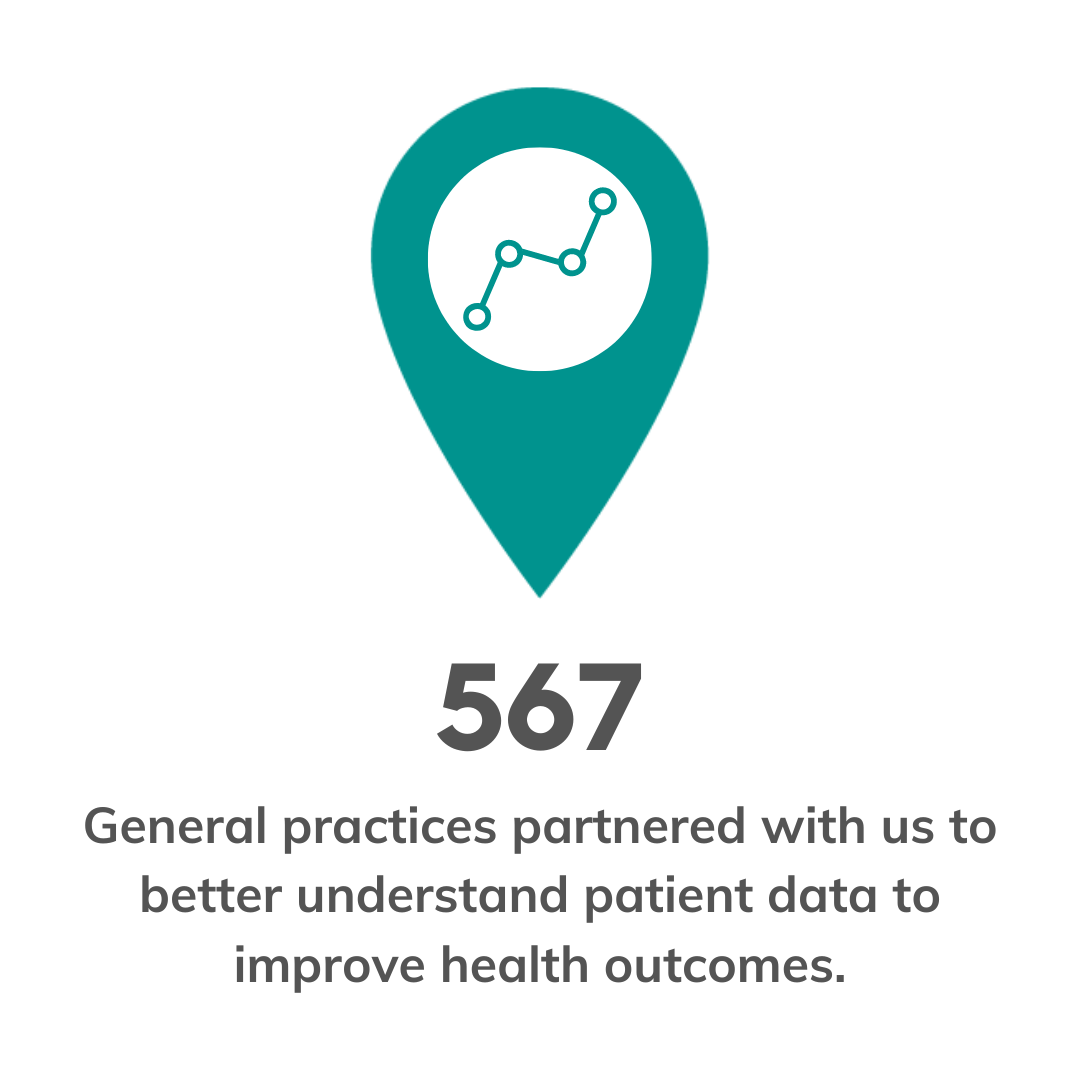
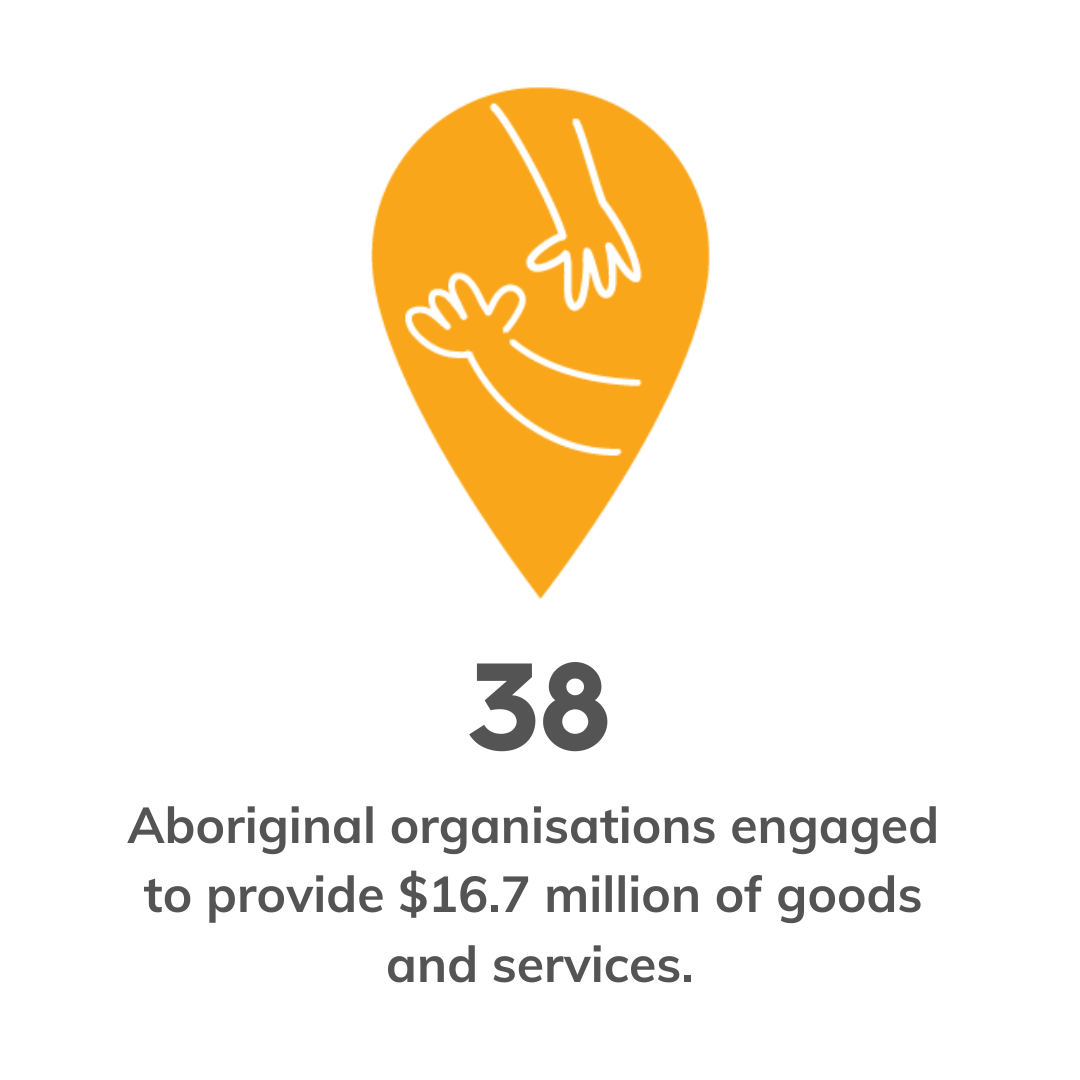
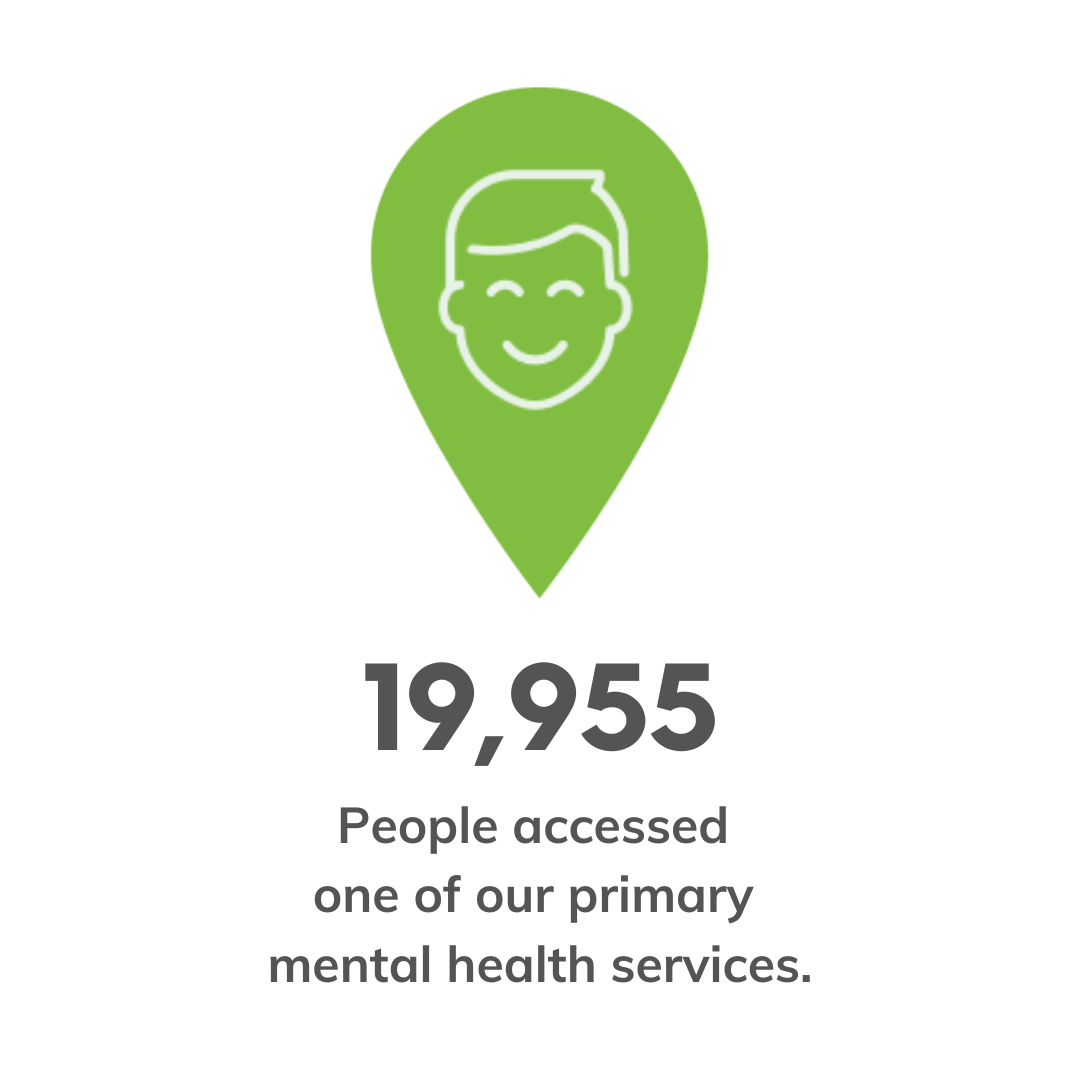
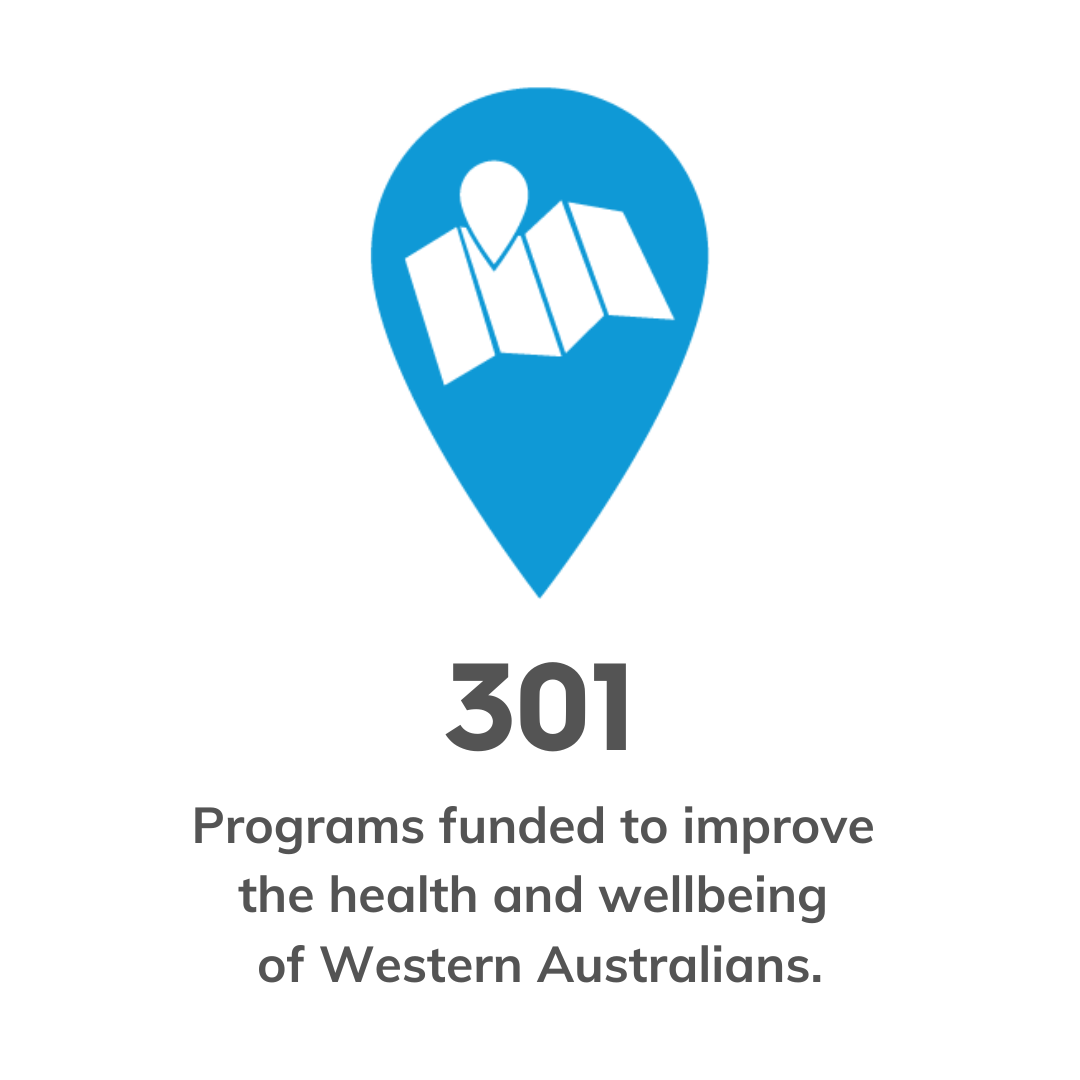
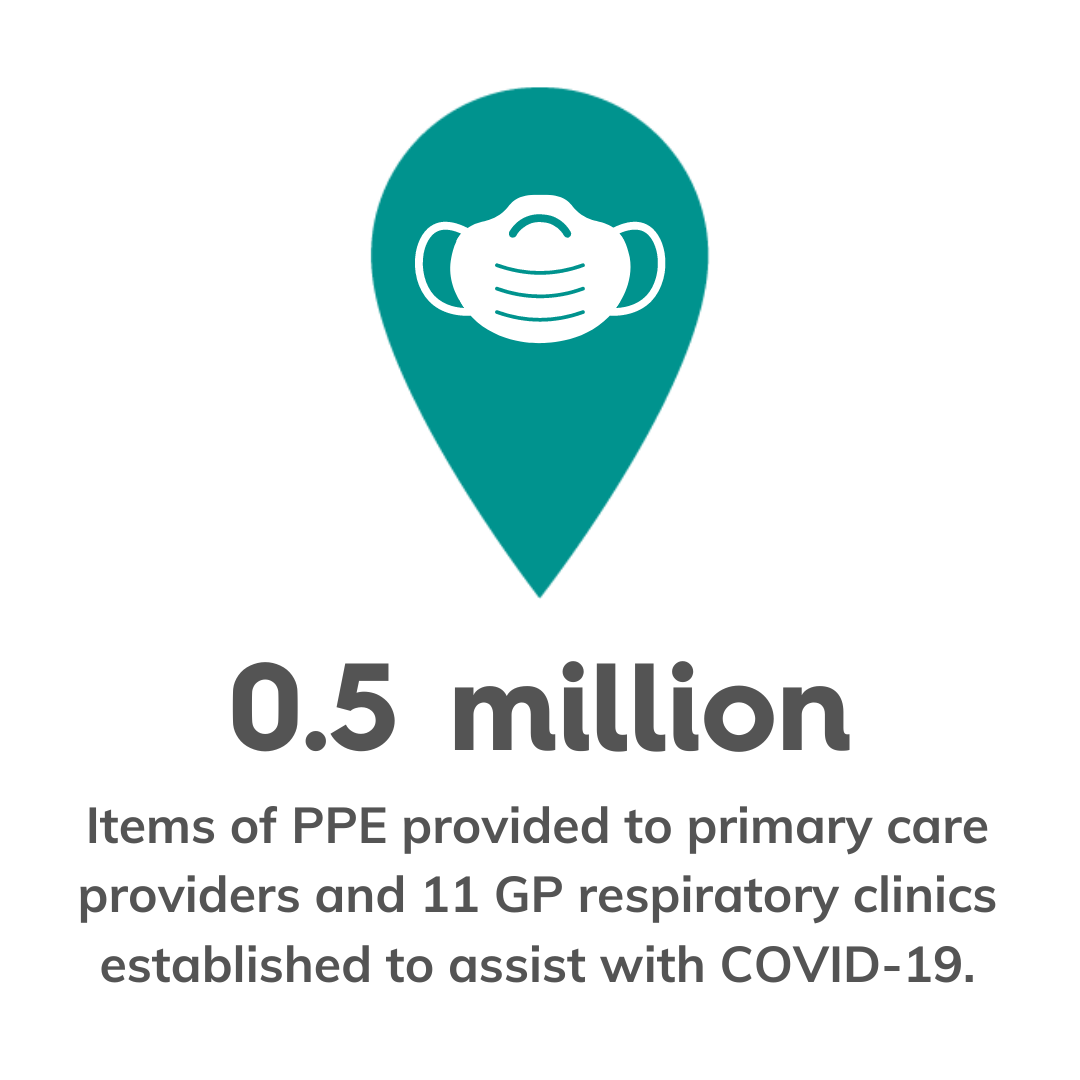
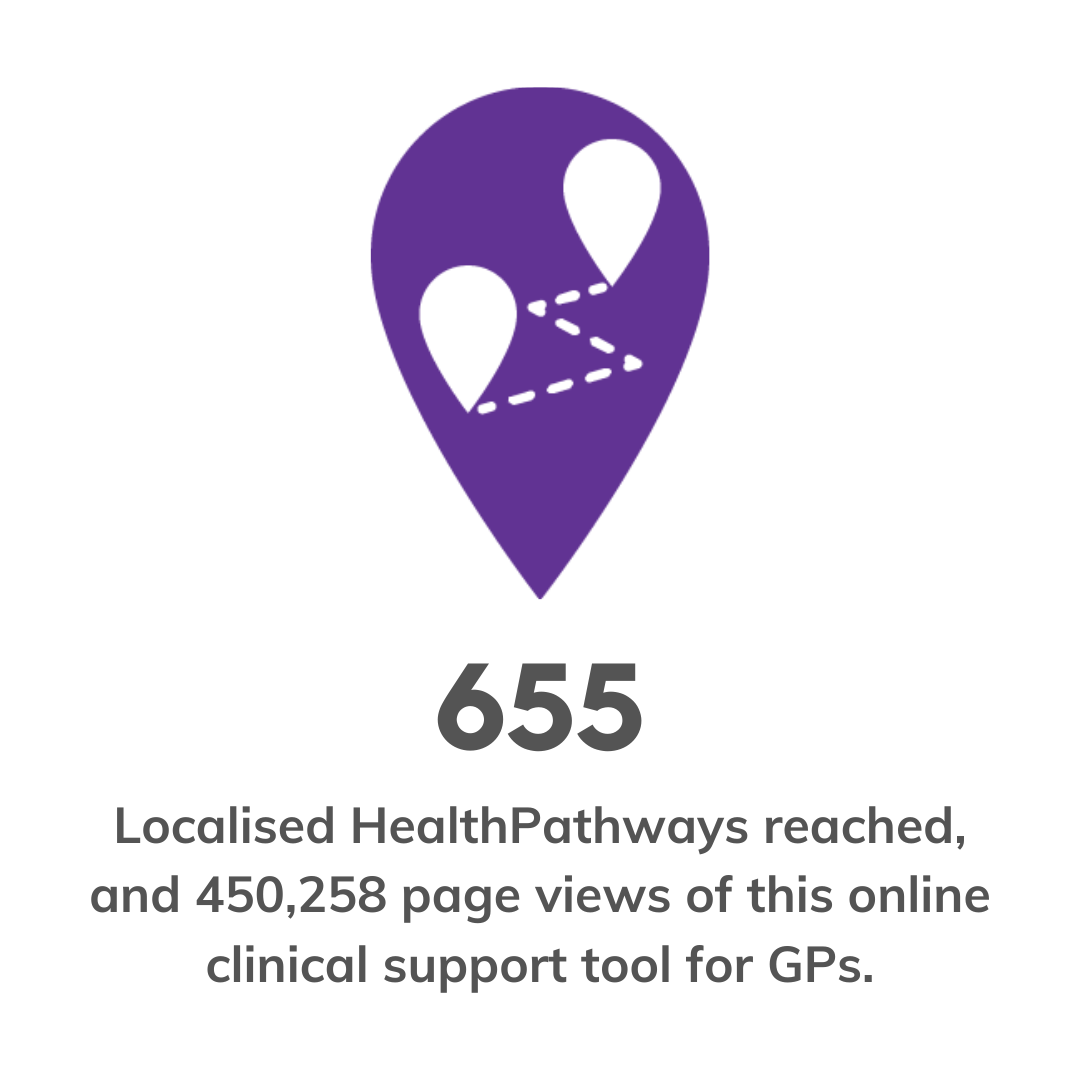
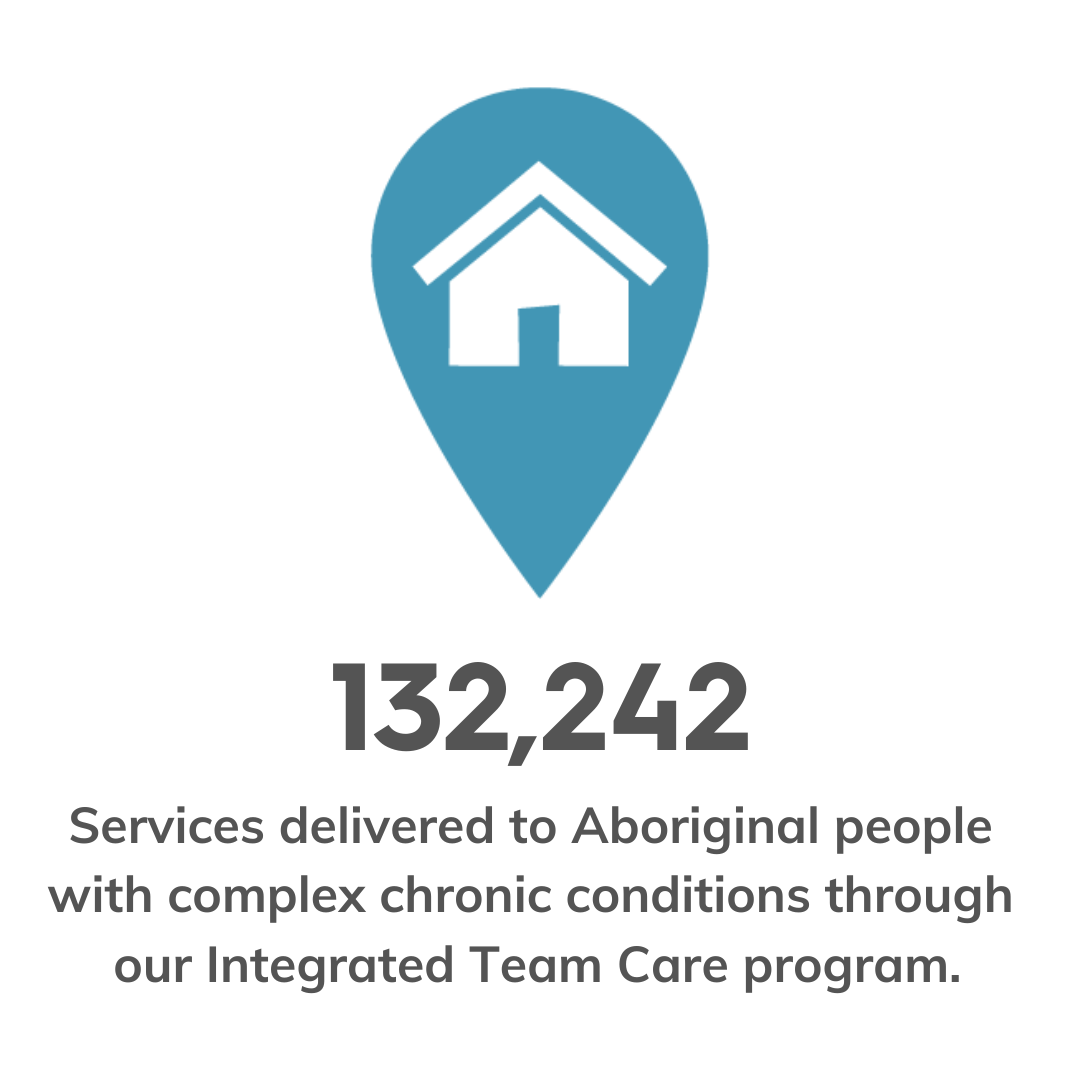
Our Strategic Priorities
Our four Strategic Priorities help us achieve our vision of a more connected primary health care system – a system that minimises barriers to accessing primary health care and ensures those with the greatest health needs are cared for as close to home as possible.
Empower People and Communities Promote and Prioritise an Integrated Health System
Commission Services in a Planned and Targeted Way Continuously Improve Primary Health Care Practice

Empower People and Communities
Engaging and advocating for people and communities across WA to help them be active participants in their own health and wellbeing.
Given our vision of better health together, we are working with communities, primary health care providers and partners across the health system in WA to improve cultural safety across the primary health care system.
This year, we consulted widely with Aboriginal and Torres Strait Islander and LGBTIQA+ communities to inform the development of cultural competency frameworks, an implementation plan, commissioning guidelines and toolkits. Consultations were conducted in Perth and regional areas of WA, with more than 200 LGBTIQA+ community members and 120 Aboriginal and Torres Strait Islander community members, as well as our staff.
Read more
The WA GP Advisory Panel pilot – a joint initiative between WA Primary Health Alliance (WAPHA), Rural Health West and the Royal Australian College of General Practitioners WA, has strengthened the voice of general practice in the planning, design and policy setting for primary health care.
Made up of 53 general practitioners, including 14 rural and remote and 39 metropolitan GPs, discussions at WA GP Advisory Panel meetings have:
- Shaped the development of WAPHA’s See Your GP – Keep your health on track campaign
- Informed submissions and representations to the independent governance review of the WA Health Services Act, and enabled them to provide a primary care voice into that review
- Translated into actions for the three lead agencies to support GP wellness and self-care.
The success of the WA GP Advisory Panel model has informed the creation of the WA GP Special Interest Panel – Care of the Older Person, providing strategic advice and guidance to support the delivery of WAPHA’s Aged Care program activities.
The LGBTIQA+ Stakeholder Reference Group was convened in March 2021 as a cornerstone of WA Primary Health Alliance’s commitment to diversity and inclusion. Comprising community members, service sector leaders and health professionals from a diverse range of organisations, the group has provided input and insight to inform the development and delivery of our Rainbow Tick Quality Improvement Plan, as well as ensuring we have lived experience voices informing and shaping our wider work.
Feedback has been given on a range of matters, including the adoption and integration of LGBTIQA+ inclusive practice into our office environment, operations and culture, cancer screening campaign resources, inclusive data collection, the development of our LGBTIQA+ Equity and Inclusion Competency Framework and a review of our LGBTIQA+ position statement.
As part of the Australian Government’s National Mental Health and Suicide Prevention Plan, we are driving the establishment of a network of Head to Health services for WA. The network will improve access to, and coordination of, mental health services delivered digitally, via telephone and face-to-face.
The first Head to Health walk-in adult mental health centre for WA opened 1 March 2022 and was shaped by strong engagement with people with lived experience such as consumers, family and carers, local health professionals, service providers, local government and the wider community.
Read more
To accelerate vaccination efforts within populations that may be more vulnerable to the effects of COVID-19, including Aboriginal populations, culturally and linguistically diverse populations, and people living in regional areas, we worked with more than 100 partners around the State.
With a focus on finding local solutions to local challenges and building on existing relationships with health care providers, commissioned services, and non-government organisations, this included working with more than 35 non-traditional partners from mining, the public sector, Aboriginal Community Controlled Health Services, consumer and sporting groups to drive vaccination rates.
Following the reopening of WA’s borders, general practices and patients were facing a changing and challenging environment. Practices were busier than ever, with many involved in COVID-19 vaccinations, and feeling the impact as their staff contracted the virus. Some patients were missing out on or putting off routine checks for chronic conditions possibly due to safety concerns or confusion about how to access their GP.
We developed a self-service digital media campaign to support general practices and provide tools to reassure and educate their patients about making appointments, the importance of screening and other routine care, what to expect when coming to the practice and the availability of telehealth. This resulted in 3660 engagements by general practices with our resource library, and our wider social media campaign achieved 501,661 impressions and 171,966 video views.
Learn more
To better understand how people most at risk of experiencing poor health outcomes access healthcare, we engaged the Behaviour Change Collaborative to research consumer views on access and barriers to primary care.
Although 31 per cent of respondents encountered barriers when visiting a GP, 92 per cent of those experiencing disadvantage had visited a GP. Accessibility factors, including appointment availability, were the most frequently cited barriers. Recommendations included promoting the benefits of having a regular GP, both to patients and general practices and raising awareness of e-prescriptions where clinically appropriate, given more than half of visits to a GP in the previous year were driven by the need to get a prescription.
This research supports national primary care policy direction with regards to increasing the accessibility of digital health and a move towards voluntary patient enrolment with a GP.
Our Innovate Reconciliation Action Plan, formally endorsed by Reconciliation Australia in February 2022, reflects our organisation’s commitment to meaningful and respectful engagement, strengthening current partnerships and establishing new ones. It is embedded in our organisational values and drives our focus on improving the health outcomes and experiences for Aboriginal and Torres Strait Islander peoples.
Underpinning this commitment, we allocated $16.7 million across 38 Aboriginal organisations, including commissioning services from 22. Across our dedicated commissioned Aboriginal health services, an average of 43% were operated by Aboriginal organisations.
Read our RAP
To assist general practitioners and health service providers with caring for COVID-19 positive people in the community, we developed the Caring for COVID-19 Positive People in Your Region resource hub.
Along with general information and resources, the hub included region specific information on services available for each of the eight regions. A total of 5,023 page views of the hub were achieved from January to June.
Promote and Prioritise an Integrated Health System
We will scale up initiatives that focus on better connecting the primary health care system.

We are developing an approach to integrated healthcare that will help to remove duplication, foster connection, and streamline patient care. It will involve several healthcare organisations, working together in an intentional, coordinated way to maximise health outcomes, cost efficiencies and improve the experience of individuals accessing services and clinicians providing them.
To help us design a model for our approach, we convened three Design Working Groups, including WAPHA’s member organisations, peak bodies, health service providers, general practitioners and lived experience consultants. The groups considered challenges and opportunities relating to the fostering and practical application of different types of integration in local communities.
A functional brief is being developed to inform WAPHA’s approach to commissioning coordination activities to support integration in identified locations.
Learn more
COVID-19 Preparedness & Primary Health Care Forum
Keeping Western Australians as safe as possible during the COVID-19 pandemic has been a major area of focus for WAPHA.
More than 60% of all COVID-19 vaccinations have been provided through primary care, the majority by GPs with important contributions also by community pharmacies. Other major areas of Australian Government-funded COVID-19 activity have included supporting a network of 11 GP Respiratory Clinics across the state, commissioning home visiting services to support GPs, providing evidence-based clinical guidelines to GPs involved in the assessment and management of COVID-19, and managing the distribution of personal protective equipment (PPE) to front-line primary care workers.
WAPHA’s contribution has been coordinated with other response agencies through the COVID-19 Preparedness & Primary Health Care Forum. Established and chaired by the WA Department of Health, the Forum has broad-based membership from the primary care sector and has been instrumental in ensuring that the primary care sector has played its full part supporting the State’s plan to minimise the impact of COVID-19 in the Western Australian community.
WAPHA has been engaged as a member of this Committee and has provided primary care advice on the Referral Access Criteria Project to ensure timelines and new referral criteria are appropriate and workable for GPs and best serve the interests of their patients.
The Smart Referrals project has required significant engagement with WAPHA to assist in the development of the project scope and impacts. The Central Referral Service Review is of vital importance to GPs in their referrals to specialist outpatient services and has required WAPHA’s ability to link WA Health staff with GPs using different practice processes, systems and software. The Manage My Care Project is an important initiative to empower patients in health literacy and becoming confident in managing their own journey of care. WAPHA is pleased to have enabled GP awareness and buy-in to this project.
The PHN Aged Care Program has emphasised the enhanced role WA Primary Health Alliance is taking to improve the health and wellbeing of older Western Australians.
In 2022, WAPHA engaged with a number of key aged care stakeholders to inform the nine dedicated activities that will support access to primary care and aged care services for older Australians. The tender launch for the PHN led care finder program, shortlisting of WA residential aged care facilities interested in increasing use and availability of telehealth and launch of the revised Aged Care HealthPathways for health professionals are all significant activities progressed this year.
Learn more
In response to the increase in positive cases across Western Australia, HealthPathways WA focused on updating and expanding the COVID-19 pathway suite, offering trustworthy and reliable information amidst ever changing guidelines.
In addition to maintaining existing pathways, five additional pathways were developed over the 2021-22 period to support general practice in the assessment and management of COVID-19 positive patients. COVID-19 Assessment and Management remains the most viewed pathway across the platform with 26,978 views in 2021-22.
Learn more
To increase awareness of My Health Record and other digital tools such as ePrescribing and secure messaging, we engaged with private specialists across WA to provide support and training.
The number of new specialist organisations registered for My Health Record rose by 111, bringing the state-wide total to 214. This represents a doubling in just one year of a number that had increased slowly for almost a decade, with a sudden increase in the pace of change over the past year
Usage of My Health Record increased overall. In June 2022, there were 5,199 uploads and 11,587 views, increases of 224% and 108% respectively compared to June 2021.
In partnership with WA Country Health Service under the Health Service Provider Protocols, the Chronic Conditions Collaborative has been working on initiatives to support integrated chronic conditions care and health system improvement across country WA.
The Patient Activation Measure has been piloted across chronic condition service providers in the South West region and the group are developing a country diabetes telehealth model of care action plan. Consistent terms of reference have been established for Chronic Condition Collaboratives located in each of the seven country regions, with workplans in development.
As part of the Australian Government’s commitment to the management of chronic heart failure (CHF), WAPHA is establishing a CHF pilot project that will support general practice in leading and coordinating multidisciplinary care in two pilot locations, the City of Armadale and the Midwest.
This financial year’s key milestones were establishing project governance, convening an Expert Reference Group of multi-disciplines across the primary and tertiary health sectors, and defining the components of the multidisciplinary model of care.

Commission Services in a Planned and Targeted Way
We are committed to continuously improving our commissioned services to ensure they deliver the greatest impact.
We launched our Performance Management Framework and Commissioned Services Reporting Portal (Portal) to support our service providers to deliver safe, high-quality, and reliable care whilst also providing us with better oversight of data, provider performance and patient outcomes. These new tools also support us in our commitment to building a strong and sustainable primary health care system; and deliver on our strategic priority of bringing a more structured and data driven approach to the management of performance and quality improvement.
We’re supporting providers to engage with their own data in an analysed format within the Portal and use this to drive change and improvement – both internally and via communities of practice. The first of these communities of practice has brought together mental health service providers to collaborate on improving the quality of services and the outcomes achieved.
We commissioned two new headspace centres in Cannington and Karratha, taking the total number of headspace services across the state to twenty.
headspace Kununurra is due to open in September 2022, with Wunan Health leading a team effort bringing together other service providers and the local community to create a space where young people feel safe and supported. headspace Esperance is expanding to a full centre in 2023, while seven existing headspace services, including Bunbury, Fremantle, Geraldton, Mandurah, Midland, Osborne Park and Rockingham, have been awarded grants under the headspace Demand Management and Enhancement Program. This funding aims to expand access to vital services for young people so they can get the support when and where they need it most.
In our commitment to fostering more innovation, collaboration, and resilience across the network of primary health care organisations, we awarded more than $4.2 million in grants to 25 organisations through our Organisational Strengthening and Development Grants Program.
These grants supported organisations to undertake activities to improve their internal capacity and capability to better meet the primary health needs of the community. Three key streams were included in the Program: integrated healthcare, Aboriginal and Torres Strait Islander cultural safety, and LGBTIQA+ inclusivity.
Read more
To help guide our investment in local primary health care services to where they will have the most impact, we released our roadmap for activity in the priority areas of alcohol and other drugs, and population health.
The Alcohol and Other Drugs Strategy will help us design and deliver activities to increase the availability of drug and alcohol treatment services in areas of high need and improve coordination and connection between sectors. The Population Health Strategy highlights our commitment to a collaborative approach to population health across the primary health care sector and will support informed decision-making and understanding of our population health priorities.
Alcohol and Other Drugs Strategy Population Health Strategy
In response to need identified by WA Primary Health Alliance (WAPHA) place-based staff, Aboriginal Health Council of WA (AHCWA), Aboriginal Community Controlled Health Services (ACCHSs) and Aboriginal Health Service Corporations (AHS) early in 2022, WAPHA commissioned AHCWA to oversee, administer and manage a grants process.
The grants made funds available to two metropolitan and eighteen country based ACCHSs and AHSs for non-clinical activities and contributed to achieving the following objectives:
- Increase COVID-19 health preparedness of Aboriginal people
- Enable the provision of appropriate healthcare of clients who are COVID-19 positive in the community through a range of non-clinical health measures
- Reduce the avoidable need for more intense and acute health services and enhance appropriate / optimal use of the health system through the provision of care in the community setting.
To support the management of COVID-19-positive people at risk of unnecessary hospitalisation, we partnered with home care health specialists Silverchain, WA Deputising Medical Service and Dial-a-Doctor to provide a COVID-19 Positive Home Visiting and Telehealth Service.
This vital service supported general practice by opening new pathways for COVID-19 positive people living in residential aged care facilities, licensed private psychiatric hostels and other vulnerable settings, to continue to be cared for in the community and stay out of hospital. To the end of June, 742 consultations were carried out under the program, with 523 of these being delivered by Aboriginal health services.
Read more
Continuously Improve Primary Health Care Practice
Advocating for quality and value-based primary health care that continually adapts to meet the health care needs of Western Australians.

Primary Sense extracts deidentified general practice data and uses evidence-based algorithms to provide GPs with real time medication alerts, reports and patient care prompts. This supports GPs to give patients the right care at the right time and reduce hospitalisation rates. PHNs can use Primary Sense to access on-demand reporting to help with population health management.
To test Primary Sense in the ‘real world’, a Pilot was planned with two Gold Coast-based general practices, to gain learnings to upscale the tool for national use. During 2022-23, PHNs will be able to roll out Primary Sense to general practices in their jurisdiction. The National Project Team will continue to work on the Primary Sense Roadmap and enhancement developments e.g., data linkage to support future releases of Primary Sense.
Primary Sense website
The Primary Health Insights data storage and analytics platform is led and operated by WAPHA on behalf of all 27 participating PHNs. After onboarding these PHNs, the PHI Team successfully planned and/or implemented a range of enhancements to the platform, established Communities of Practice to support collaboration, engaged ongoing support of external stakeholders through effective communications and secured agreement from interested PHNs to participate in the first collaboration zone.
Primary Health Insights website
To build the confidence and capability of primary care practitioners in supporting people experiencing alcohol and other drug issues, we launched WA’s first Project ECHO, the Alcohol and Other Drug Network – A Project ECHO Initiative. The Network brings together general practitioners and experts in addiction medicine to:
- Support greater connection between rural, remote and metropolitan practitioners, providing insight into place-based challenges and treatment options
- Foster relationships between primary care practitioners and a range of specialists
- Contribute to growth of knowledge and confidence on alcohol and other drug treatment in the primary care workforce.
Project Echo completed 7 sessions, with 122 participants, of whom an average of 38% were GPs.
Learn more
The new Training and Communities of Practice Team, formed in July 2021, delivers topical e-learning, face to face and webinar-based learning opportunities to clinical, management and administrative staff in general practice.
In its first year, the team organised 43 primary care educational events, attended by about 3330 participants, and established one Community of Practice; Project Echo Alcohol and Other Drug Network, with 122 participants and 7 sessions held.
Events calendar
As key contributor to the COVID-19 Vaccine Rollout in WA, we continued to support the primary health care system, particularly general practice and residential aged care facilities, to manage an increase in COVID-19 cases as Australia moved into the vaccine transition and consolidation phase of the national COVID-19 response.
Key activities to further strengthen the primary care response included:
- 1500 letters sent to onboard practices to administer five types of vaccines
- Commissioning an innovative free clinical assessment and management service for COVID-19 positive people at risk of unnecessary hospitalisation and unable to access their usual GP
- Supporting seven of WA’s 11 GP Respiratory Clinics to extend their service provision into the after-hours period
- Launching a bespoke, online COVID-19 information and resource hub for service providers
- Supplying 0.5 million items of personal protective equipment provided to primary care providers.
During WA’s COVID-19 surge earlier this year, WA’s GP Respiratory Clinics, part of the Australian Government’s front-line response to COVID-19, supported patients with respiratory symptoms and COVID-19, helping to relieve pressure on general practices and emergency departments.
The network of 11 clinics has delivered more than 75,000 appointments since April 2020 and administered more than 185,000 vaccinations in that period. We also supported seven of WA’s 11 GP Respiratory Clinks to extend their service provision into the after-hours period.
Learn more

People and Culture
Creating meaningful employee experiences, encouraging continuous learning, and nurturing and developing leadership skills.
Financial Snapshot
Find out how our funding has been allocated over the past year.


